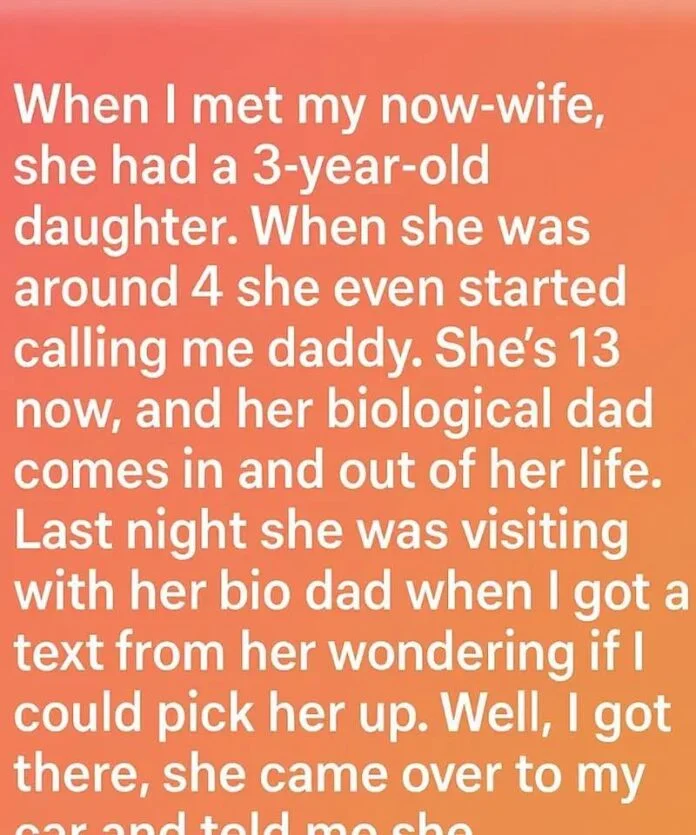When I first entered her life, I wasn’t sure how I would fit into her world. Would she accept me? Would she push me away? Children, after all, often carry their own quiet doubts when someone new steps into a parental role.
What I didn’t realize then was that children also have a way of teaching us lessons we never expected—lessons about patience, trust, and unconditional love.
She began calling me “Daddy” when she was just four years old. I hadn’t asked her to, and I didn’t expect it. It slipped out naturally, as though her heart already knew what her lips were saying. At that moment, I realized something profound: love doesn’t always need biology to be real, lasting, and deeply meaningful.
Growing Up Together
Now she is thirteen, standing at the edge of adolescence—a season full of changes, emotions, and challenges. Her biological father drifts in and out of her life. Sometimes he appears, making promises that fade like shadows. Other times he disappears without explanation.
She doesn’t speak much about it, but I know she feels it. The uncertainty, the letdowns, the unspoken questions—it’s there in her eyes even when she stays silent.
One evening, my phone buzzed with a short message from her. Just five words: “Can you pick me up?” No details, no explanations, just a quiet plea for someone steady.
I didn’t hesitate. I grabbed my keys and headed out the door.
A Silent Ride, A Powerful Moment
When she climbed into the car, she carried only a small bag. She didn’t look upset—just tired. The kind of tired that comes from carrying invisible weight. We drove in silence for a while, the hum of the road filling the space between us.
Then, softly, she said, “Thanks for always coming. I know I can rely on you.”
Those words cut straight through me. Not because they were dramatic or loud, but because they were simple, honest, and real.
It was in that moment I understood something I had always known deep down: being a father isn’t about titles, biology, or perfection. It’s about showing up, day after day, in the ordinary moments that shape a child’s sense of security.
The Meaning of Fatherhood
So many people think fatherhood is about the big gestures—the vacations, the gifts, the milestones. But I’ve come to see it differently. Fatherhood is built in the consistency of small things.
It’s in the pickups after school.
It’s in the late-night talks, even when words are few.
It’s in the steady presence that says, without needing to, “I’m here, and I’m not going anywhere.”
Every ride in the car, every moment of quiet support, every act of simply being there has created a bond stronger than DNA.
Love by Choice
That evening, as we drove home, I was reminded of something I carry with me every day: fatherhood is not just given, it’s chosen.
I chose to love her when I entered her life. I chose to stay, to be consistent, to be dependable. And she, in her own way, chose me back. She chose to trust me, to let me in, to call me “Daddy” when she was ready.
It is this exchange of choice, over and over again, that makes our bond unshakable.
A Bond Worth Everything
Some days, being a father means laughter at the dinner table. Other days, it means listening to silence, respecting space, or waiting until she’s ready to share. It’s not always easy. But it is always worth it.
That night reminded me that children don’t measure love in grand gestures. They measure it in presence. They measure it in knowing they can count on you to show up.
In the end, fatherhood is not about bloodlines. It is about love, commitment, and consistency. It’s about the daily choice to stand beside a child and say: “You matter. You’re safe. I’m here.”
I didn’t just step into her life by chance. I step into it every day by choice. And the greatest gift is knowing she chooses me too.



